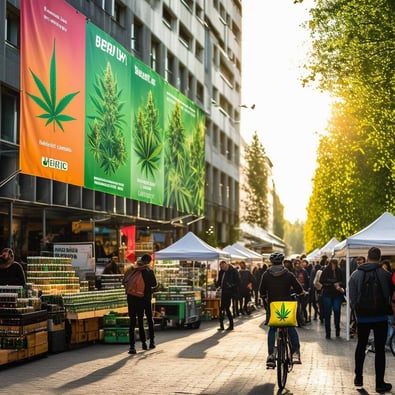Can I smoke weed in a public place? Here’s a refresher on California cannabis law.
While the new year will usher in new laws, the cannabis landscape of California will remain the same — for now. In 2024, cannabis users will get more protection from their employers when it comes to smoking outside of work. In the meantime, here’s a refresher on when, where and who can use weed in California.
CAN MY EMPLOYER PENALIZE ME FOR CANNABIS USE?
California recently passed a new cannabis bill, protecting employees from weed bias, but it’ll be a while before it goes into effect.
Called AB 2188, it bans employers from discriminating against employees based on their use of weed off the job and away from the workplace. This includes the hiring, employment and termination processes.
There are exceptions to the law, including people who work in the construction and building industry or positions that require federal background clearances. And while it protects off-duty smoking, employers will still have the right to fire or suspend employees for using weed or being high while at work.
While the bill was signed by Gov. Gavin Newsom in September, it won’t be carried out until January 2024.
WEED MIGHT BE LEGAL, BUT NOT FOR EVERYONE
Recreational cannabis use has been legal since 2016, but only for those 21 years old and over. Those under 18 who are caught with weed will be subject to drug education or counseling and community service. People who are older than 18 but under 21, will be fined up to $100. That said, minors can apply for a medical marijuana identification card to get weed for medicinal purposes. In California, children under 18 years old can apply as a patient if they are emancipated or have declared self-sufficiency status, according to the state’s Department of Health. If they do not have this status, then the county will contact the individual’s parent or legal guardian.
THE LEGAL LIMIT OF WEED
There’s a limit to how much cannabis you can have on hand in California, according to the state’s health and safety code. You’ll be penalized if you possess more than 28.5 grams of weed, or more than eight grams of concentrated cannabis — essentially about one ounce. Individuals under 18 who violate this code will be required to do drug education or counseling and community service. Those over 18 will be imprisoned in a county jail for up to six months.
WEED AT SCHOOLS
If you’re caught with weed on a school campus that teaches kids from kindergarten to grade 12 during open hours, expect a hefty fine. People 18 and over carrying up to 28.5 grams of cannabis or eight grams of concentrated cannabis will be fined up to $250 for the first offense and up to $500 or imprisonment for the following offenses.
SELLING WEED
You need to have a license to sell weed via a business. Other than that, exchanging weed for money is illegal. You can, however, gift marijuana products to your loved ones, without a license.
SMOKING IN PUBLIC
It’s illegal to smoke weed in public. If you’re caught, you can be fined up to $100, and up to $250 if you’re in an area where smoking tobacco is prohibited. There are heavier penalties if you’re smoking within 1,000 feet of daycares, schools and other centers where children are present. National parks, state parks and residential areas also do not allow cannabis use. You also cannot smoke, consume products or have an open container or package while driving or riding in a car, boat or aircraft.
TRAVELING WITH WEED
Travel across state lines with cannabis, even if you are coming to and from a state that legalized marijuana, is prohibited.
At airports, weed law can get complex. Since it’s legal in California, some airports, such as the Los Angeles International Airport and Sacramento International Airport, might allow you to bring a legal amount of up to 28.5 grams.
Once you reach the Transportation Security Administration, however, federal regulations will come into play and under federal law, weed is illegal. If a TSA officer finds any potential violations of the law, they can report it to local, state or federal authorities. They will then determine whether you can proceed with traveling with the cannabis product.




